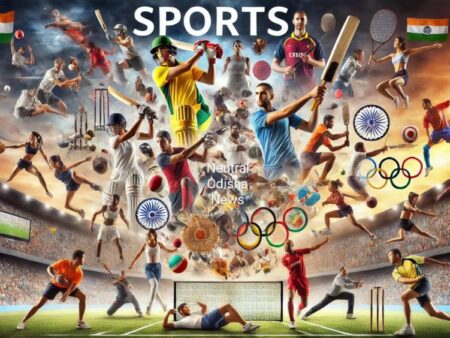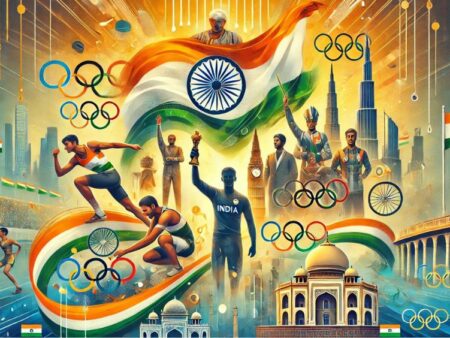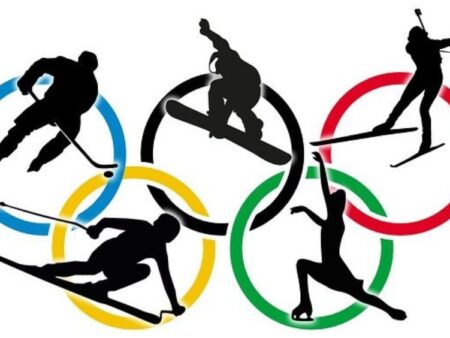The journey of India to the Olympics is a story of a nation’s determination, zeal, and slow and steady climb. A look at the landmarks of the past and the present will reveal a rapid discovery of India on the international stage. This year was a complicated one for sportsmen worldwide, let alone the most inspiring performances and great moments in the Olympic history of our country.
India Olympics History
India first participated in the Olympics in 1900 when Norman Pritchard, a sportsman from British India, participated in the Paris Olympics. He bagged two silver medals in athletics and helped India get on the Olympic map. But it was only in about 1920 that India finally became a separate delegation, which entered a team into the Antwerp Olympics. This set the stage for an unbroken interactive engagement with the game’s formation and development in each decade that presented unique opportunities and accomplishments.
India’s Olympic Journey
Till the mid-nineties, India’s Olympic sojourn was replete with scarce resources and minimum exposure. Nevertheless, India did not disappoint the public with its hockey team. India itself ruled field hockey for a period of 28 years from 1928 to 1956 they grabbed world championship gold medals six times in a row, which makes them synonymous with the term ‘excellence’ in the game. However, triumph in other fields was not very obvious during this period as well.
In the post-independence period, India widened its Olympic participation endeavor beyond the sport of hockey. The nation had stiff competition but was persistent all the same. The completion of the automatic qualification of the Indian hockey team for the Olympics and the final triumph for the country in the 1980 Moscow Olympics put a stop to the Indian stranglehold on hockey by winning the last of the gold medals.
India’s First Olympic Medal
India’s first independent Olympic medal was a bronze awarded to wrestler K. D. Jadhav in the 1952 Olympics held in Finland. It was his landmark that paved the way for future generations to engage in international contests that involve individualism. It proved the point that India could look beyond team events, and in a particular field, people are being identified in abundance.
India’s Gold Medals in Olympics
India had the most comprehensive and unbeatable record in the Olympics since it won eight gold medals in hockey. The first gold was achieved in Amsterdam in 1928, where India had outplayed the Netherlands 3-0 in the final. The team had another win in 1932, and the subsequent wins in 1936 after independence successes in 1948, 1952, and 1956 made India secure its place in the Olympics. Those two golds in 1964 and 1980 ended this golden era, but those are something people can be proud of.
Read Also this: Indian Paralympics 2024: The Rising Sunny Trip Of Encouragement And Success
Indian Olympic Achievements
Indian athletes have delivered themselves in several events, including wrestling, boxing, badminton, and shooting. One of them is Abhinav Bindra, who won a gold in shooting in the Beijing 2008 Olympics; he was the first Indian to win a gold individually. Else, the boxing bronze by Vijender Singh in 2008 Beijing, the wrestling silver by Sushil Kumar in 2012 London, and the badminton bronze by PV Sindhu in 2016 Rio are remarkable. These successes have demoralized a new generation of athletes to Asia for the Olympic games.
India and Olympics
In the past decades, many Indian athletes have come to prominence on the Olympic platforms. These are events like Milkha Singh, who almost won the prize but instead became a legend of India, or this modern-era athlete like Neeraj Chopra. The pair of athletes, razing through the laughs, have embodied the journeys of every other athlete, adding to India’s presence in the world of sports.
Famous Indian Olympians
The Olympic history of tremendous India is marked by names that have millions of fans across the country. Bahadur Dhyan Chand, considered today the world’s exceptional player of hockey, took India to victory of several consecutive gold medals. Shooting has found its Trifle in the form of an Abhinav Bindra, and boxing has got its Mary Kom, the Iron Lady. Saina Nehwal, Saina, Sushil Kumar, Davinder Singh, and Leander Paes are other prominent sporting personalities of India who have also brought good changes in India’s position in the world sports facility.
India’s Olympic Medals
Conventional ‘powerhouse’ rankings remain inevitable, yet India’s medal tally has slowly but surely moved upwards. India has won medals in different types of sports, from Norman Pritchard, who won a silver in the 1900 Olympics for India in France, right to Neeraj Chopra, who won a historic gold in javelin throwing in the 2020 Tokyo Olympics. He won six medals in the 2012 London Olympics, which was the maximum number India had ever won. Such a success proves that the country is increasingly becoming more competitive and adaptable not only to various games.
The Performance of India at the Tokyo Olympics
The Olympics of Tokyo 2020 were a history-making Olympics for India, as it has given its best Olympics to date. Neeraj Chopra’s win in the javelin was a historic win for the nation because he is the first Indian to win a gold in track and field. The nation also has moments to cheer in this regard, as the latter also saw Mirabai Chanu bagging silver in weightlifting, Ravi Kumar Dahiya in wrestling, and PV Sindhu clinching bronze in badminton. Altogether, India won seven medals and this established India’s new status in the Olympic world and created a good platform for the future.
India’s Olympic Milestones
The history of India and the Olympics has our colorful journey from the first medal it won at the 1900 Olympics to possibly its best show at Tokyo 2020. All such accomplishments are indicative of the hard work put in by Indian athletes, encouragement from the viewers, and the growing sports facilities. These moments provide evidence of India’s persistence and commitment to sports and to making the generation dream of the Olympic Games.
This book is a colorful narration of India’s Olympic performance, encapsulating inspiring victories and touching upon difficulties that are part and parcel of the journey of integration, sustainable development, and global growth.







